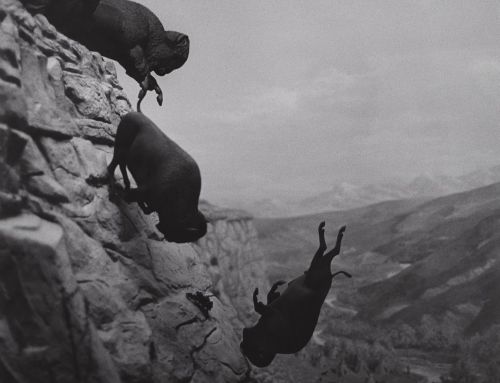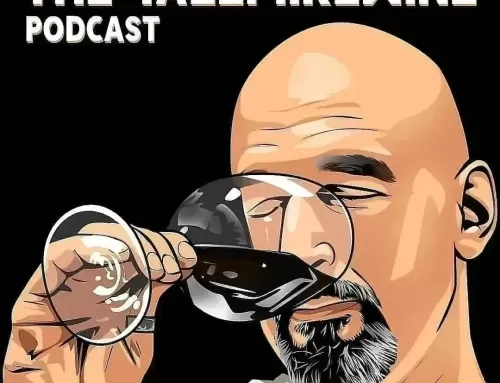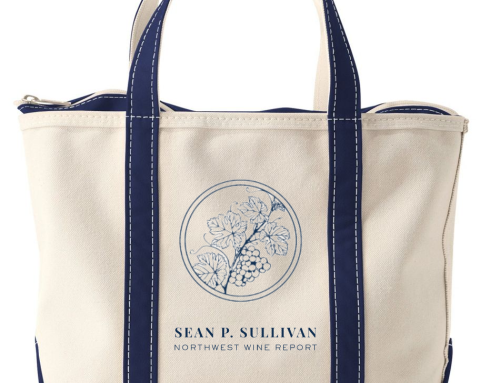For people looking to understand Initiatives 1100 and 1105 on the November ballot in Washington State, in the next series of posts I will attempt to summarize relevant background information. While I have tried to make the information as accurate and succinct as possible, the details of these initiatives are quite complicated. Beware people who say otherwise. Posts are broken up as follows:
Part I: Initiative Titles, How We Got Here, and a Quick Summary of Initiatives 1100 and 1005: ‘Initiative Titles’ states what voters will be reading on their ballots. ‘How We Got Here’ discusses how these initiatives got on the ballot in the first place. ‘Quick Summary of Initiatives 1100 and 1105’ gives a quick overview of similarities and differences between these initiatives.
Part II: Initiative 1100 Breakdown: Gives an in-depth look at Initiative 1100.
Part III: Initiative 1105 Breakdown: Gives an in-depth look at Initiative 1105.
Part IV: Other Issues to Consider: Discusses other issues of relevance and gives some summary thoughts. Without further ado…
In the Crucible – Boiling down Initiatives 1100 and 1105: Part I of IV
Initiative Titles
This is what voters will be reading on the November ballot.
“Initiative Measure No. 1100 concerns liquor (beer, wine and spirits). This measure would close state liquor stores; authorize sale, distribution, and importation of spirits by private parties; and repeal certain requirements that govern the business operations of beer and wine distributors and producers.”
“Initiative Measure No. 1105 concerns liquor (beer, wine and spirits). This measure would close all state liquor stores and license private parties to sell or distribute spirits. It would revise laws concerning regulation, taxation and government revenues from distribution and sale of spirits.”
How did we get here
Initiative 1100 – Six years ago, Costco, which is responsible for the lion’s share of the funding for Initiative 1100, sued Washington State on the grounds that its alcohol system violated federal antitrust laws. Among a long list of aims, Costco looks to eliminate state liquor stores and dismantle the three-tier distribution system.
A federal judge sided with Costco in 2006; a federal appellate court subsequently sided with the state two years later. With both the Washington State legislature and the Supreme Court unlikely to take up the matter up, Costco went to the initiative process to try to make the legislative changes it is looking for.
Initiative 1105 – Initiative 1105 was created in response to Initiative 1100. The initiative was initially promoted by Washington Beer and Wine Wholesalers. Like Initiative 1100, 1105 would privatize liquor sales and distribution. However, it retains the three tier distribution system.
Suffice to say that numerous companies and municipalities across the country are watching these initiatives closely – and throwing around a lot of money one way or the other – anticipating that what happens here may set a precedent for laws in their states.
Quick Summary of Initiatives 1100 and 1105
I have attempted to summarize here significant similarities and differences between these two related initiatives. Please note that both initiatives propose substantial additional changes not listed in this section many of which will affect YOU. If you are voting on these initiatives, I implore you to read the subsequent posts for more detailed information.
In short, Initiative 1100 privatizes liquor sales, closes state liquor stores, eliminates the current three tier system of producing, distributing, and selling alcohol, and makes substantial additional changes to the state liquor laws (see subsequent posts for details). It also changes taxation.
Initiative 1105, on the other hand, privatizes liquor sales and eliminates state liquor stores but maintains the three tier distribution system. It also makes changes to taxation.
Table #1 compares the two initiatives.
| Table #1 | |
| Initiative 1100 | Initiative 1105 |
| Privatizes liquor sales and distribution and closes all state liquor stores | Privatizes liquor sales and distribution and closes all state liquor stores |
| Eliminates the current three tier system of producers, distributors, and retailers | Retains the three-tier system. Requires that spirits be sold through a middle person (wine and beer can currently be sold directly in addition to the three tier system). |
| Allows volume discounts on sales of wine, beer, and spirits | Retains laws that prohibit volume discounts for beer and wine. Volume discounts for spirits would be allowed. |
| Makes substantive additional changes to the state liquor laws | Does not make substantive additional changes to the state liquor laws |
| Retains liquor excise tax | Eliminates liquor excise tax |
| Eliminates liquor profits (i.e. markup) | Eliminates liquor profits (i.e. markup). Recommends the legislature create new taxes |
| The Office of Financial Management estimates that Initiative 1100 is revenue negative at the state ($76 to $85 million) and local ($180 to $192 million) level. | The Office of Financial Management estimates that Initiative 1105 is revenue negative at the state ($486 to $520 million) and local ($205 to $210 million) level. |
The next post will give a breakdown of Initiative 1100.
Feel free to send along any corrections or annotations to the information here by commenting below. You can also email me at [email protected]. See this post for my position on these two initiatives.







I'm not surprised that the Washington Beer and Wine Wholesalers would vehemently oppose any initiative that would allow retailers to go around them. What is the value add of the distributor tier? I'm not buying that they have a vested interest promoting responsible consumption of alcohol; let's face it, they are in it for the money.
I'm also not quite buying into the idea that the distributors protect the retailers from 'evil' big producers. With distributors getting exclusive distribution rights for a given territory there is a practice of forcing small retailers to take brand Z if they want to get brand A.
Finally, initiative 1100 does not put the current state contracted liquor stores out of business. In fact it explicitly states that they are eligible to apply for a retail license. The question then becomes, can they compete against the Walmarts, Walgreens, and Costco's in Washington state. I think the answer is 'only if they can find niches' that the big stores don't satisfy. Obviously they won't be able to compete on price (something that in theory keeping distributors would allow). However, its not the big stores that put little stores out of business, its us consumers that choose to shop on price over loyalty or service.
So its pretty clear that I'm not against these initiatives. Are they all good and no evil? NO. There are always consequences to change. We as voters have to try to sort out what we think is best.
This is a great set of articles Sean, I'm looking forward to the continuation!!
Carl, many thanks for the comment. Indeed, I think one of the most important things to remember about these initiatives is that all of the interest groups that are throwing money around are doing so not because of love but because of money. I'm not saying that this is a bad thing. Just something to be aware of. When I hear all of the positive and negative hype, the first question I ask is, "What is this person's financial interest in these initiatives?" Usually that is pretty elucidating.
Regarding the state liquor stores, it is an interesting and somewhat confusing distinction. As I understand it, these stores are run based on private contracts to the state. So if one or both of these initiatives pass, these contracts are terminated. The state itself is then out of the liquor sales business. The liquor stores, as state run entities, are closed. However, these businesses could then apply for a retail license and become fully private enterprises. Of course, this would be very, very different than being a state operation.
Your statement "its not the big stores that put little stores out of business, it's us consumers that choose to shop on price over loyalty or service" I could not agree with more. It's always important to remember that, barring financial issues which for many are significant, we all have choices about where we shop.
Thanks again. Part II tomorrow.
These initiatives suggest to me new taxes on both the consumer and the producer in order to make up the revenue lost to the state. The small producers are already taxed to their eyeballs and frankly, how are prices going to drop for the consumer if the state just imposes new taxes?
I am not saying that I like state stores, I am just saying that the people who benefit from these initiatives are not consumers and small producers.
Terry, I do expect that if either of these initiatives passes, there will be attempts at additional taxation to make up for the lost revenue. Of course, there are other initiatives on the ballot that could make it considerably more difficult to do so.
While some might argue with your point about whether consumers and small producers would benefit from these initiatives, it is – again – important to remember that these initiatives were not written by/for consumers or small producers. They were written by/for businesses. To the extent consumers benefit, that is a happy byproduct but the intention is to benefit businesses. Again, this is not a criticism. Just something to be aware of.
Thanks for doing the homework on this, I'm glad to see normal people discussing all the points instead of spin doctors conveniently leaving out information that's critical to my decision making.